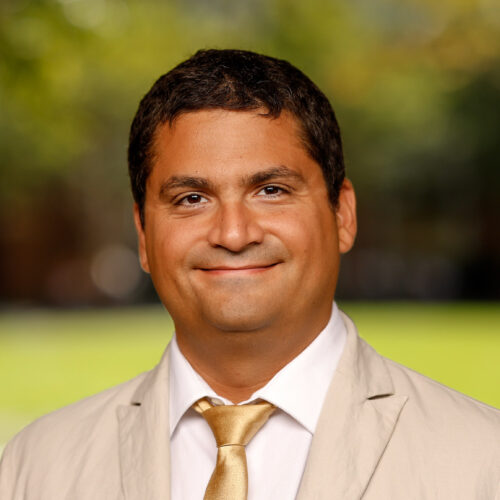
Hani Safadi
- Associate Professor, Department of Management Information Systems
C420 Benson Hall
Biography
Hani Safadi is Associate professor at Terry College of Business, University of Georgia. He is interested in online communities, social media, health IT, information systems development, and the application of computational techniques in management research. His research is published in outlets such as MIS Quarterly, Information Systems Research, Organization Science, Journal of the Association for Information Systems, and Journal of Medical Internet Research. He is Senior Editor in the Journal of the Association for Information Systems and a past Associate Editor at MIS Quarterly.
Education
- PhD, Business/MIS, McGill University, 2015
- MS, Computer Science, McGill University, 2008
- BA, Computer Engineering, Damascus University, 2006
Research Interests
- Mixed-methods design
- HealthCare IT
- Open-source organizing
- Social media
- Online communities
Publications
Journal Articles
- Tiwana A. & Safadi H. (2025). Silence in Evolving Systems: Architectural Origins, Mechanisms, and Consequences. Information Systems Research.
- Watson R. & Safadi H. (2025). Capital Asymmetry. Business Horizons.
- Safadi H., Skousen T. & Karahanna E. (2024). Firm-Sponsored Online Communities: Building Alignment Capabilities for Participatory Governance. Information Systems Research.
- Safadi H., Lalor J. & Berente N. (2024). The Effect of Bots on Human Interaction in Online Communities. MIS Quarterly.
- Shuraida S., Safadi H., Jain R. & Gao Q. (2024). The Impact of Feature Exploration and Exploitation on the Evolution and Survival of Mobile Applications. Journal of the Association for Information Systems.
- Safadi H. (2024). Balancing Affordances and Constraints: Designing Enterprise Social Media for Effective Organizational Knowledge Work. MIS Quarterly.
- Safadi H. & Watson R. (2023). Knowledge Monopolies and the Innovation Divide: A Governance Perspective. Information and Organization.
- Tiwana A. & Safadi H. (2023). Atrophy in Aging Systems: Evidence, Dynamics, and Antidote. Information Systems Research.
- Miranda S., Berente N., Seidel S., Safadi H. & Burton-Jones A. (2022). EDITOR’S COMMENTS. Computationally Intensive Theory Construction: A Primer for Authors and Reviewers. MIS Quarterly.
- Safadi H., Johnson S. & Faraj S. (2021). Who Contributes Knowledge? Core-Periphery Tension in Online Innovation Communities. Organization Science.
- Skousen T., Safadi H., Young C., Karahanna E., Safadi S. & Chebib F. (2020). Successful Moderation in Online Patient Communities. Journal of Medical Internet Research.
- Berente N., Seidel S. & Safadi H. (2019). Data-Driven Computationally-Intensive Theory Development. Information Systems Research.
- Vaast E., Safadi H., Lapointe L. & Negoita B. (2017). Social Media Affordances for Connective Action: An Examination of Microblogging Use During the Gulf of Mexico Oil Spill. MIS Quarterly.
- Johnson S., Safadi H. & Faraj S. (2015). The Emergence of Online Community Leadership. Information Systems Research.
- Safadi H., Chan D., Dawes M., Roper M. & Faraj S. (2015). Open-source health information technology: A case study of electronic medical records. Health Policy and Technology.
Book Chapters
- Safadi H. (Forthcoming). Building Research Programs in the Computationally Intensive Theory Construction Genre. Digital Trace Data Research in Information Systems: Foundations, Methods, and Applications.
- Berente N., Lindberg A., Miranda S., Safadi H. & Seidel S. (2025). Computationally Intensive Theory Construction. Routledge Companion to Management Information Systems, 2nd Edition.
- Safadi H., Boudreau M. & Faraj S. (2023). One Picture to Study One Thousand Words: Visualization for Qualitative Research in the Age of Digitalization. Cambridge Handbook of Qualitative Digital Research.
Editorial Appointments
- Senior Editor, Journal of the Association for Information Systems, 2024–present
- Associate Editor, MIS Quarterly, 2021–2024
- Review Board, IEEE Transactions on Engineering Management, 2016–2024
Awards, Honors, and Recognition
- AIS Mid-Career Award, AIS, 2024
- 2024 INFORMS ISS Sandra A. Slaughter Early Career Award, INFORMS, 2024
- Best Published Paper Award: Atrophy in Aging Systems: Evidence, Dynamics, and Antidote, Annual Meeting of the Academy of Management, 2024
- MSBA Excellence in Teaching Award, University of Georgia, Terry College of Business, 2024
- Research Excellence Award, University of Georgia, Terry College of Business, 2023
- Outstanding Teaching Award, University of Georgia, Terry College of Business, 2023
- First Runner-Up Best Published Paper Award: Who Contributes Knowledge? Core-Periphery Tension in Online Innovation Communities, Annual Meeting of the Academy of Management, 2022
- Best Theory Paper: The Effect of Bots on Human Interaction in Online Communities, International Conference on Information Systems, 2021
- AIS Distinguished Member, December 2020 Cohort, Association for Information Systems, 2020
- Best Theory Paper: Open Communities and Formal Organizations: A Symbiosis View, International Conference on Information Systems, 2020
- Best Publication of 2019: Data-Driven Computationally-Intensive Theory Development, International Conference on Information Systems, 2020
- Best Information Systems Research Paper of 2019: Data-Driven Computationally-Intensive Theory Development, Information Systems Research, 2020
- Best Associate Editor, International Conference on Information Systems, 2019
- Best Theory Paper: Tension Resolution and Sustaining Knowledge Flows in Online Communities, International Conference on Information Systems, 2019
- Best Division Paper Award: Who Contributes Knowledge? Embeddedness and Marginality in Online Communities, Annual Meeting of the Academy of Management, 2018
- Best Published 2015 Paper Award: The Emergence of Online Community Leadership, Annual Meeting of the Academy of Management, 2016
- Second Runner-Up Best Dissertation Award, International Conference on Information Systems, 2015
- Best Conference Paper Award: Grassroots versus Established Actors' Framing of a Crisis: Tweeting the Oil Spill, Annual Meeting of the Academy of Management, 2014
- Excellence in Teaching Award, Desautels Faculty of Management, 2013
Prior Professional Positions
- Research Collaborator, Mayo Clinic, 2016-2021
- Visiting Assistant Professor, Stevens Institute of Technology, 2014-2015
